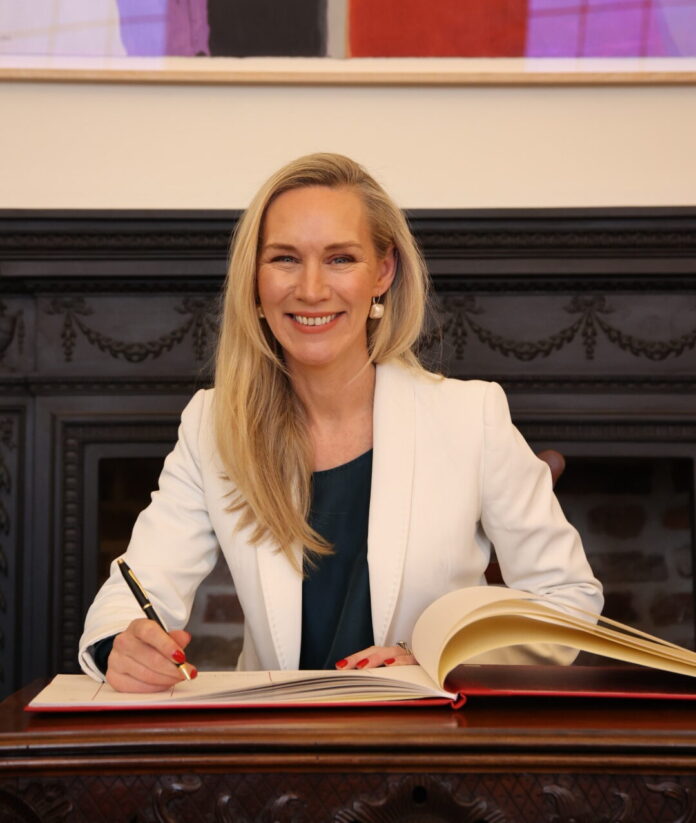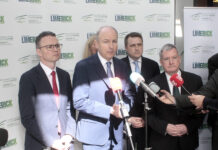
A LIMERICK politician has put the wind up the government in their call for key infrastructure investments to be accelerated in harnessing Ireland’s floating offshore energy potential.
Raising the issue in the Seanad with Tánaiste Simon Harris, in the aftermath of President Trump’s announcement of tariffs on the EU, Fianna Fáil senator Dee Ryan stressed the need to “control the controllables” to safeguard Ireland’s competitiveness.
“The potential fallout from a trade war makes the government’s commitment to investing in infrastructure more important than ever. We must control the controllables by accelerating investments in key infrastructure such as water, road, rail, and energy grids to future-proof our economy,” said the Limerick senator said.
She highlighted Ireland’s significant natural wind energy resources off the west coast and called for the accelerated zoning of marine areas in the deep Atlantic to facilitate floating wind farm development.
Senator Ryan also emphasised the critical role of the Port of Foynes at the Shannon Estuary, urging increased investment in ports along the west coast to support the offshore wind sector.
“We need to act now to strengthen our electricity grid at Moneypoint and Tarbert and ensure our ports are equipped to support this new industry. Without these upgrades, we risk losing investment to other countries that are moving faster,” the former Limerick Chamber CEO said.
“I’m pleased to see a commitment in the Programme for Government to fast-track offshore wind by prioritising the publication of Designated Maritime Area Plans (DMAPs). But now we need action, resourcing the relevant agencies, using the new Planning Act to speed up developments, and ensuring a regionally balanced approach to port upgrades.”
To make all of this achievable, Ryan believes Ireland needs to invest in the skills and workforce required to build and sustain this new industry.
The University of Limerick and TUS, she insists, have a crucial role to play in developing the expertise needed, and the government must work closely with them to ensure Ireland is preparing for the opportunities ahead.
“This is a once-in-a-generation economic opportunity. We must ensure Irish companies are positioned to benefit, creating jobs and securing long-term investment,” she concluded.









